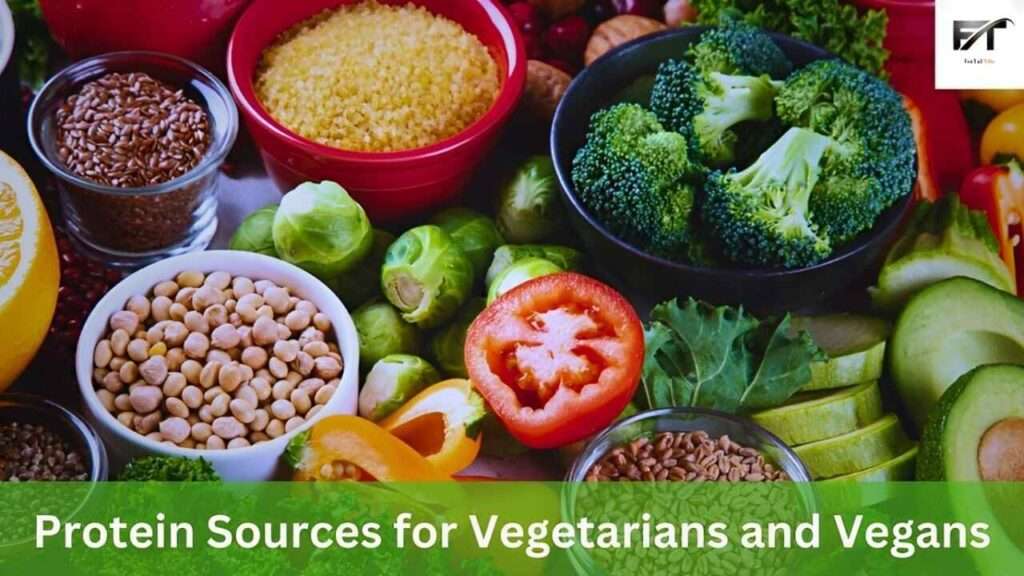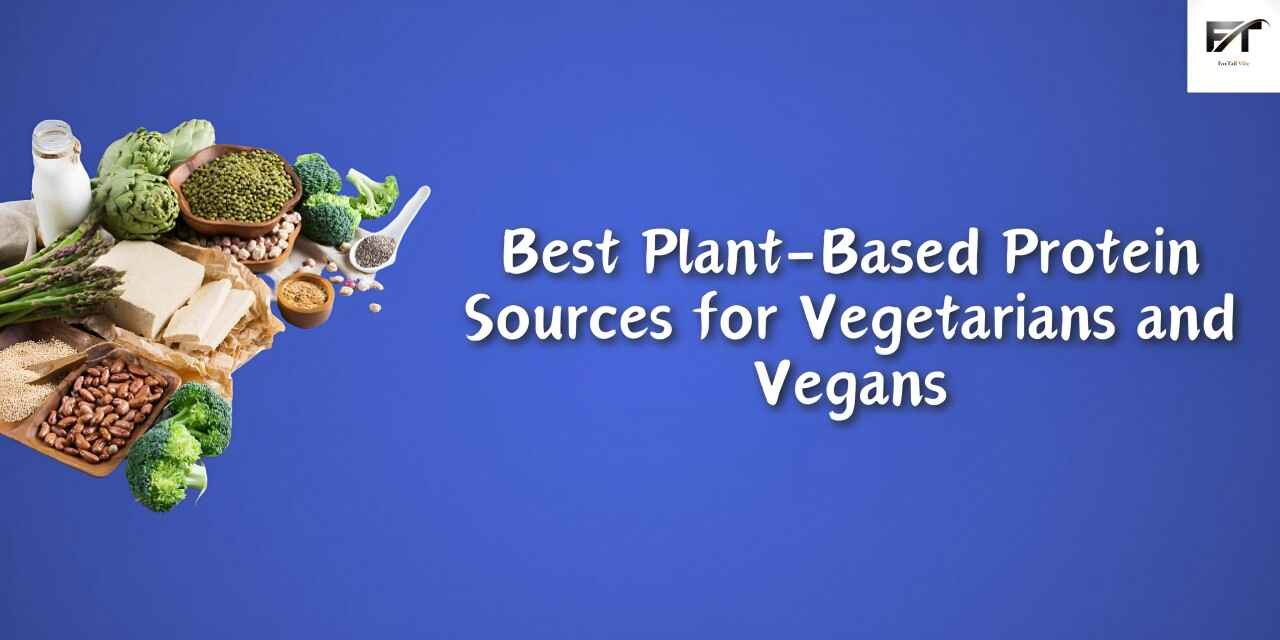In recent years, there has been a growing interest in plant-based diets, driven by concerns about health, sustainability, and animal welfare. One of the common misconceptions about vegetarian and vegan diets is that they lack sufficient protein. However, there are plenty of plant-based protein sources that can meet your daily protein needs while providing a variety of essential nutrients. In this guide, we’ll explore some of the best plant-based protein sources for vegetarians and vegans, along with tips on how to incorporate them into your meals.

Legumes: Nature’s Protein Powerhouses
Legumes, which include beans, lentils, chickpeas, and peas, are excellent sources of plant-based protein. They are also rich in fiber, vitamins, and minerals, making them a nutritious addition to any diet.
- Beans: Whether it’s black beans, kidney beans, pinto beans, or navy beans, beans are a versatile and affordable protein source. They can be used in soups, salads, burritos, and dips like hummus.
- Lentils: Lentils come in various colors, including green, brown, and red, and they cook relatively quickly compared to other legumes. They are perfect for adding to soups, stews, curries, and salads.
- Chickpeas: Also known as garbanzo beans, chickpeas are a staple in Mediterranean and Middle Eastern cuisines. They can be roasted for a crunchy snack, mashed into hummus, or added to salads and grain bowls.
- Peas: Whether fresh, frozen, or dried, peas are a nutritious addition to any meal. They can be added to stir-fries, pasta dishes, and soups for an extra boost of protein and fiber.
Nuts and Seeds: Tiny Powerhouses of Nutrition
Nuts and seeds are not only delicious but also packed with protein, healthy fats, vitamins, and minerals. They can be enjoyed as a snack on their own or used as toppings for salads, oatmeal, and yogurt.
- Almonds: Almonds are one of the best sources of protein among nuts, and they also provide calcium, magnesium, and vitamin E. Enjoy them as a crunchy snack or add them to smoothies and homemade energy bars.
- Walnuts: Walnuts are rich in omega-3 fatty acids, which are essential for heart health. They can be sprinkled over salads or oatmeal, or ground into a paste to use as a base for sauces and dips.
- Chia Seeds: Chia seeds are tiny but mighty, boasting high levels of protein, fiber, and omega-3 fatty acids. They can be soaked in liquid to make a pudding-like dessert, added to smoothies, or sprinkled over cereal and yogurt.
- Flaxseeds: Like chia seeds, flaxseeds are rich in protein, fiber, and omega-3 fatty acids. They can be ground and used as an egg substitute in baking recipes or sprinkled over salads and oatmeal for added crunch.
Whole Grains: Wholesome and Nutrient-Rich
Whole grains are not only a good source of complex carbohydrates but also contain protein, fiber, vitamins, and minerals. Incorporating a variety of whole grains into your diet can help you meet your daily protein needs while promoting overall health.
- Quinoa: Quinoa is a complete protein, meaning it contains all nine essential amino acids that the body cannot produce on its own. It is incredibly versatile and can be used as a base for salads, stir-fries, and grain bowls.
- Brown Rice: Brown rice is a whole grain that provides a moderate amount of protein along with fiber and essential nutrients. It can be enjoyed as a side dish, added to soups and casseroles, or used to make rice bowls.
- Oats: Oats are not only a great source of fiber but also contain a decent amount of protein. They can be enjoyed as oatmeal for breakfast, used as a binding agent in veggie burgers and meatballs, or ground into flour for baking.
- Whole Wheat Pasta: Unlike refined pasta, whole wheat pasta retains the nutritious bran and germ of the wheat kernel, providing protein, fiber, and other essential nutrients. It can be served with marinara sauce, pesto, or tossed with roasted vegetables for a satisfying meal.
Soy Products: Versatile and Protein-Packed
Soy products, such as tofu, tempeh, and edamame, are popular plant-based protein sources that offer a wide range of culinary possibilities. They are rich in protein, iron, calcium, and other essential nutrients, making them an excellent addition to vegetarian and vegan diets.
- Tofu: Tofu is made from soy milk and is a versatile ingredient that can be grilled, stir-fried, baked, or blended into smoothies and desserts. It absorbs the flavors of marinades and seasonings, making it suitable for a variety of dishes.
- Tempeh: Tempeh is made from fermented soybeans and has a firm texture with a slightly nutty flavor. It can be sliced and marinated for sandwiches and salads, crumbled and used as a meat substitute in tacos and chili, or grilled and served with vegetables.
- Edamame: Edamame are young soybeans that are harvested before they ripen and can be enjoyed steamed, boiled, or roasted as a snack. They are rich in protein, fiber, and antioxidants, making them a healthy addition to any meal or snack.
Incorporating plant-based protein sources into your diet can not only help you meet your daily protein needs but also promote overall health and well-being. Whether you’re a vegetarian, vegan, or simply looking to add more plant-based foods to your meals, there are plenty of delicious and nutritious options to choose from. Experiment with different ingredients, flavors, and cooking techniques to discover new favorite dishes that nourish your body and delight your taste buds.
Also Read – Demystifying the Keto Diet: Pros, Cons, and Safety Tips
